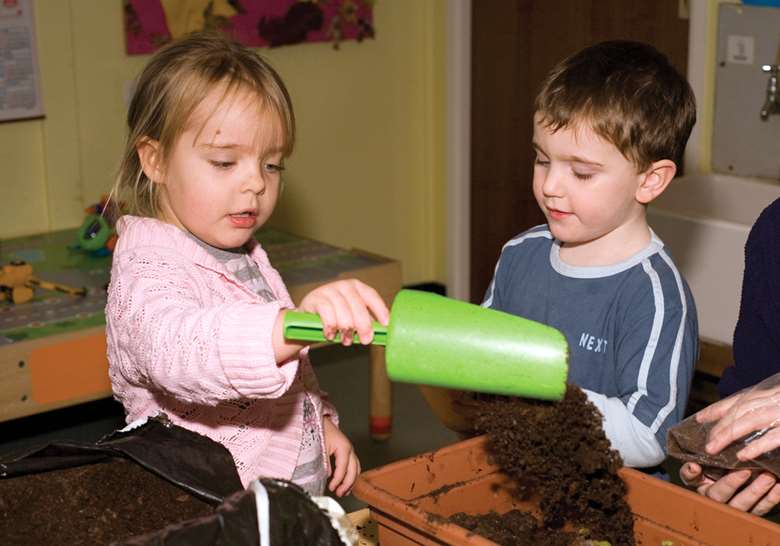Skills for the Job: Helping children affected by poverty
Maureen Nuttall
Tuesday, January 6, 2015
With poverty on the increase in the UK, the number of children and families needing help and support from professionals is growing.

How many children are affected by poverty?
There are 3.5 million children living in poverty in the UK - equivalent to one in four. Many of Action for Children's services are seeing families under increasing pressure and poverty is a part of that. For example, more families are needing donations of food and clothes, while more children and parents are experiencing mental health problems.
How can those working with children affected by poverty best support them?
Speaking to the parent is the first port of call. They may feel overwhelmed and we know that if parents can be engaged and feel they have control, it improves outcomes for children.
Poverty can have a negative effect on parents' ability to provide the kind of parenting that helps children reach their potential. The most significant way to help parents break the poverty trap is to refer them to a children's centre or other place where they can talk about their problems and find ways to manage them.
This can include making sure they are getting the benefits they are entitled to, help with budgeting and managing debt and learning life skills that can save money.
What should you do if a child is hungry?
Hunger affects children's physical health and makes it harder for them to develop educationally and socially, so it is a very serious issue.
Providing food is obviously the first step. In play groups, childminding and other day care provision, there is always an opportunity to provide a snack and drink. Ensuring that children have free access to healthy snacks is important as hungry and dehydrated children do not have the energy to learn and play. If the family is struggling to provide food, then a referral to a food bank may be the next step.
What else should you be doing?
Staff should look out for signs and sensitively ask questions of the child as part of supporting them to engage in play and learning.
Looking out for things like hunger, dirty clothes, clothes that don't fit and tiredness might point to problems like not being able to run or replace household appliances, not having a place to sleep or being unable to afford clothes.
Providing practical support with food, clothes and household goods can help enormously, so it is important to know what resources like this are available in your community.
Some children's services integrate these kinds of donations - for example, giving out food parcels or having a "clothes swap" area, which is a more low key way of providing children's clothes.
Where can people go for additional information and advice on helping children affected by poverty?
It depends what help the family needs. Your project should build links with a range of services, such as the local authority, housing associations, advice services like the Citizens Advice Bureau, law centres, benefits advisers and health services, as well as charities like Samaritans, Home Start, Shelter and Step Change.
Local authorities are responsible for administering emergency support through local welfare assistance schemes. These schemes often provide gifts in kind, like a bed or small amounts of financial support. Unfortunately, because funding for these programmes is limited, there can be quite strict application criteria. This means some families might not be eligible for help.
Local charities might also be able to provide support in certain situations, depending on the circumstances of each family.
Top tips
- Engage parents straight away, and ask if you can be of any help
- Ensure you know what support is available in your local area
- Encourage parents to get the support they are entitled to
- Think about what you can do within your own service to support families in poverty
- Do not ignore a hungry, smelly, dirty child or see it as none of your business
Maureen Nuttall, service development manager, Action for Children




